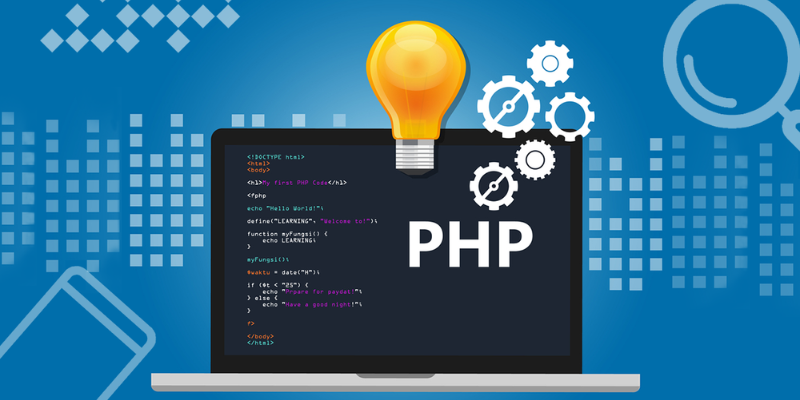PHP is a widely used open-source scripting language that is particularly suited for web development and can be embedded into HTML. While many developers start with the basics of PHP, mastering advanced techniques can significantly enhance the efficiency, security, and scalability of their applications. This blog will discuss how to master advanced PHP Techniques. If you are interested in mastering these advanced PHP techniques, you might want to consider PHP Training in Chennai at FITA Academy, which will provide proper training and knowledge.
Understanding Object-Oriented Programming (OOP) in PHP
Object-Oriented Programming (OOP) is a fundamental paradigm in advanced PHP development. Unlike procedural programming, which revolves around functions, OOP is based on objects and classes, allowing for better organization and modularity in your code.
Key Concepts of OOP
- Classes and Objects: A class serves as a blueprint for objects, outlining the properties and methods that instances created from it will possess. An object, in turn, represents a specific occurrence of a class.
- Inheritance: This allows a class to inherit properties and methods from another class. It helps in code reusability and hierarchical classification.
- Polymorphism: Polymorphism allows methods to do different things based on the object it is acting upon, even if they share the same name. This is typically achieved through method overriding or interfaces.
- Encapsulation: This concept restricts direct access to some of an object’s components, which can prevent the accidental modification of data. Access modifiers like private, protected, and public are used to implement encapsulation.
Benefits of Using OOP
- Code Reusability: Through inheritance, common functionality can be used across multiple classes.
- Modularity: Breaking down the code into classes and objects makes it more manageable and easier to debug.
- Scalability: OOP makes it easier to scale your applications by adding new features without disrupting existing functionality.
Implementing Design Patterns
Design patterns offer established solutions to recurring software design challenges. Grasping and incorporating design patterns in PHP can substantially enhance the architecture and maintainability of your codebase.
Common Design Patterns in PHP
- Singleton Pattern: This pattern ensures that a class has a single instance and offers a global access point to it. It proves particularly beneficial for managing database connections.
- Factory Pattern: This pattern specifies an interface for creating things, but subclasses can change the types of objects created. It proves useful for generating objects without specifying the exact class of the object to be created.
- Observer Pattern: This pattern enables an object to inform other objects of changes in its state. It is especially helpful for programming that is event-driven.
- Strategy Pattern: This pattern creates a family of algorithms, wraps them, and makes them interchangeable. This enables the algorithm to alter independently of the clients that utilize it. PHP Classes enable the effective implementation of this concept.
Enhancing Performance
Optimizing PHP code for performance is crucial, especially for applications that handle a large number of requests.
Techniques for Performance Enhancement
- Opcode Caching: PHP compiles scripts into opcodes before execution. Using an opcode cache like OPcache stores these opcodes in memory, reducing the compilation time for subsequent requests.
- Database Optimization: Efficient database interactions can significantly improve performance. Use indexing, proper query structuring, and avoid unnecessary data fetching.
- Code Profiling: Tools like Xdebug or Blackfire can profile your PHP applications, helping you identify performance bottlenecks.
- Load Balancing: Distributing incoming network traffic across multiple servers ensures no single server becomes a bottleneck, improving the performance and reliability of your application.
Ensuring Security
Security is a paramount concern in web development. Advanced PHP developers must understand and mitigate common security vulnerabilities.
Common Security Practices
- Input Validation and Sanitization: Always validate and sanitize user inputs to prevent SQL injection, cross-site scripting (XSS), and other injection attacks.
- StatePrepared ments: Using prepared statements with parameterized queries is a robust defense against SQL injection.
- Secure Session Management: Implement proper session management to prevent session hijacking. Use secure cookies and regenerate session IDs after login.
- Error Handling: Proper error handling ensures that sensitive information is not exposed to end-users. Use custom error handlers to manage errors gracefully.
Leveraging Composer and Autoloading
Composer is a dependency management tool for PHP that allows you to manage project libraries efficiently.
Benefits of Composer
- Dependency Management: Composer manages your project’s dependencies, ensuring that you use the correct versions of libraries.
- Autoloading: Composer provides a powerful autoloading feature, allowing you to automatically load classes without manually including them.
Mastering advanced PHP techniques requires a solid understanding of object-oriented programming, design patterns, performance optimization, security best practices, and efficient dependency management. By investing time in learning and implementing these advanced techniques, you can significantly enhance your PHP development skills, leading to more robust, efficient, and maintainable applications. Consider enrolling in a Training Institute in Chennai to embrace these techniques, and you’ll find yourself better equipped to tackle complex projects and stay ahead in the ever-evolving world of web development.

